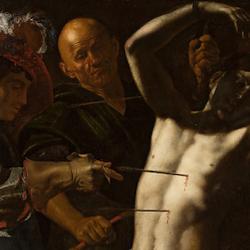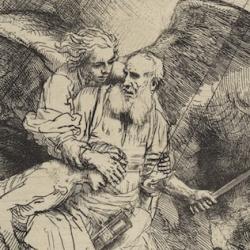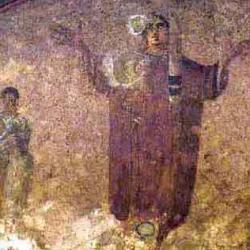“We have an altar, from which those who serve the tabernacle have no right to eat. For the bodies of those animals whose blood is brought into the holy place by the high priest as an offering for sin are burned outside the camp. Therefore Jesus also, that He might sanctify the people through His own blood, suffered outside the gate” (Hebrews 13:10-12).
The author of Hebrews refers to the regulations of Leviticus 4. The blood of sin offerings for priests and for the whole congregation was taken into the holy place and smeared on the horns of the golden altar. When that happened, the animal’s flesh was not consumed but burned outside the camp. Blood goes in, flesh goes out. Blood goes in, no meal.
Jesus’ sin offering is different. His blood is taken into the heavenly holy place, and His flesh is destroyed outside the camp. And yet, the writer of Hebrews implies, we have an altar, and apparently a right to eat from that altar.
It sounds like a high privilege, and it is. But eating the flesh of a sin offering isn’t just a festive event. According to Leviticus 10, priests ate the flesh of sin offerings as part of their responsibility to bear the liability and guilt of the people of Israel. They were “sin-eaters” who absorbed the guilt of worshipers who offered their sin offerings. They didn’t eat the flesh of sin offerings that they offered for themselves, because they couldn’t bear their own sins.
If we now have an altar and eat a sin offering whose blood has entered the holy place and whose flesh has gone outside the gate, then we are playing the role of priests. We who eat the flesh and blood of Jesus’ sin offering are also sin-eaters, bearing sin on behalf of the world. Christ bears our burdens to bear them away; but Christ also incorporates us by the Spirit into His burden-bearing, so that we fulfill the law of Christ. In our Eucharistic meals, as we consume the sin offering that is Jesus, we are sharing responsibility for the guilt of the human race, suffering not only with the world but for the world.
No wonder many churches are reluctant to have this meal too often. But if it’s a dangerous meal, it’s a dangerous meal we are called to share, and to share with thanksgiving, taking our burden, like our Lord, for the joy set before us.















